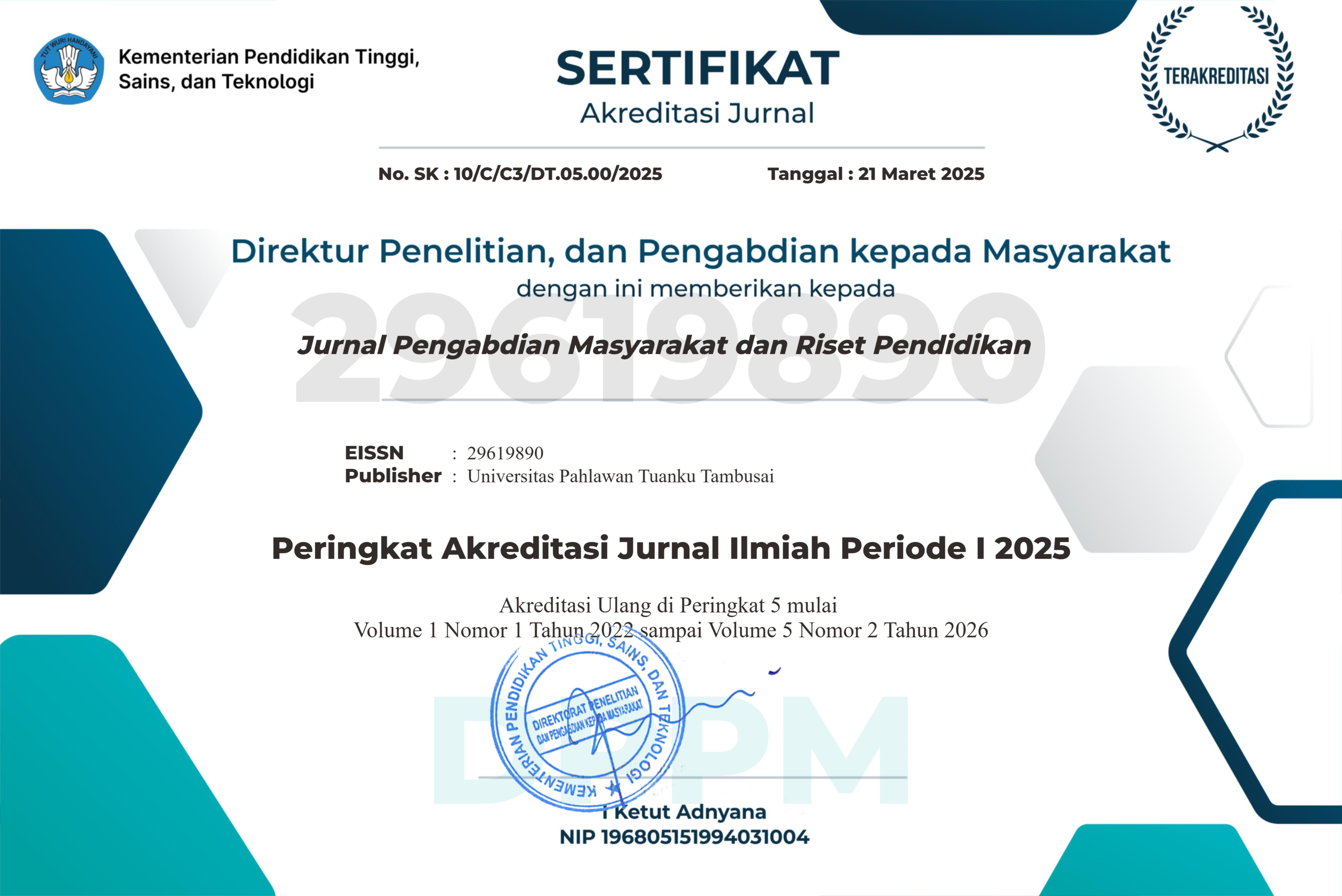Pengaruh Bahasa Gaul Media Sosial terhadap Kemampuan Berbahasa Indonesia Mahasiswa Pendidikan Administrasi Perkantoran UNIMED
Penelitian
DOI:
https://doi.org/10.31004/jerkin.v4i2.3193Keywords:
Slang, Indonesian, Social Media, Generation Z, Digital LiteracyAbstract
This study aims to determine the extent to which the use of slang influences the use of Indonesian on social media among Generation Z students, particularly in the Office Administration Education Study Program at Medan State University. This study used a quantitative descriptive method with a purposive sampling technique on 50 students. The instrument was a Likert scale questionnaire to measure the intensity of slang use, the situations in which it is used, and respondents' perceptions of its influence on Indonesian use. The results showed that almost all respondents were familiar with slang terms (96%) and most used them intensively on social media (84%). Slang was predominantly used in interactions with campus friends (82%) and friends outside campus (86%), while use with family was relatively low (12%). A total of 72% of respondents stated that slang influenced their habits of using Indonesian, both in vocabulary and communication style. These findings demonstrate the dynamics of language among the younger generation, where slang functions as a social identity, but also poses challenges to the continued use of good and correct Indonesian.
References
Badan Pengembangan dan Pembinaan Bahasa. 2018. Pedoman Umum Ejaan Bahasa Indonesia. Ed. 4. Kementerian Pendidikan dan Kebudayaan, Jakarta.
Chaer, A. 2015. Sosiolinguistik: Perkenalan Awal. Ed. 3. Rineka Cipta, Jakarta.
Kridalaksana, H. 2018. Kamus Linguistik. Ed. 5. Gramedia Pustaka Utama, Jakarta.
Nurhayati, N. 2022. Dampak bahasa gaul terhadap keterampilan menulis akademik mahasiswa. Jurnal Pendidikan Bahasa dan Sastra Indonesia, No.12, Vol.1, 45–53.
Rahayu, S. 2020. Pengaruh penggunaan bahasa gaul di media sosial terhadap keterampilan berbahasa Indonesia. Jurnal Pendidikan Bahasa, No.5, Vol.2, 115–124.
Simanjuntak, R. 2021. Bahasa gaul dan tantangan penggunaan bahasa Indonesia baku pada mahasiswa. Lingua Journal, No.9, Vol.1, 33–45.
Sugiyono. 2019. Metode Penelitian Kuantitatif, Kualitatif, dan R&D. Ed. 2. Alfabeta, Bandung.
Suryadi, M. 2021. Pengaruh media sosial terhadap perkembangan bahasa remaja. Jurnal Komunikasi dan Media, No.15, Vol.2, 77–89.
Tarigan, H. G. 2015. Pengajaran Kosakata. Ed. 2. Angkasa, Bandung.
Yuliana, D. 2023. Variasi bahasa gaul dalam komunikasi mahasiswa di era digital. Jurnal Linguistik Terapan, No.18, Vol.3, 210–220.
Arifin, Z., Pratama, R., & Lestari, D. (2023). Pengaruh penggunaan Bahasa gaul terhadap kemampuan menulis formal siswa SMA. Jurnal Pendidikan Bahasa, 15(2), 112–124. https://doi.org/10.24036/jpb.v15i2.2023
Putra, M. A. (2024). Slang and digital identity: The role of language in Gen Z social media communication. Journal of Sociolinguistics and Digital Culture, 12(1), 55–70. https://doi.org/10.1007/sociodig.2024.0012
Suryaningsih, E. (2022). Dinamikabahasagaul di media sosial: Studi sosiolinguistik. Lingua: Jurnal Bahasa dan Sastra, 18(3), 201–217. https://doi.org/10.22202/lingua.v18i3.2022
Rahman, F., & Dewi, S. (2025). Media sosial dan perubahankebahasaangenerasimuda Indonesia. International Journal of Indonesian Linguistics, 7(1), 88–104. https://doi.org/10.1016/ijil.2025.01005
Nugraha, A. (2023). Literasi digital dan tantanganbahasa Indonesia di era media sosial. JurnalLiterasi Digital Indonesia, 4(2), 140–155. https://doi.org/10.31943/jldi.4.2.140
Downloads
Published
How to Cite
Issue
Section
License
Copyright (c) 2025 Ijen Fredi SetiawaBu’lolo, Nabila Khairunnisa Zahra, Naila Dewi Mutia, Nazla Aprilia, Putri Sri Lestari

This work is licensed under a Creative Commons Attribution-ShareAlike 4.0 International License.















